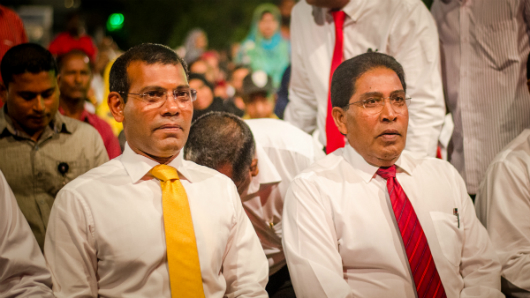Amnesty International has called upon the Maldives to establish a moratorium on flogging, and to annul all convictions for the crime of fornication.
The human rights NGO has made the recommendations as part of its submission for the 60th session of the Committee on the Elimination of All Forms of Discrimination against Women later this month.
“Laws criminalizing ‘fornication’ or ‘adultery’ can act as a deterrent to women and girls reporting rape because they fear being prosecuted if their allegations are not believed,” reads the submission.
The committee is the body of independent experts that monitors implementation of the Convention on the Elimination of All Forms of Discrimination against Women (CEDAW).
In its submission for the UN Human Rights Council’s Universal Periodic Review, released last month, Amnesty argued that human rights in the Maldives in general had deteriorated over the past four years.
While having ratified CEDAW in 1993, the Maldives has maintained reservations to any provision which may contradict the principles of Islamic Sharia enshrined in the country’s Constitution.
“As frequently highlighted by UN treaty bodies and UN Special Procedures, including CEDAW, flogging constitutes a cruel, inhuman or degrading punishment and the criminalization of fornication is a violation of the rights to privacy and bodily autonomy,” said Amnesty.
The NGO reported that attempts to gain statistics of the incidence of flogging from the Prosecutor General’s Office had been unsuccessful.
New regulations for flogging introduced by the Supreme Court last October noted that the offender must be of sound mind, must not be pregnant, and must not have an illness that could endanger his or her life due to flogging.
Moreover, a sentence for flogging must be implemented after the convict has either exhausted the appeal process or declined to appeal the verdict in the specified period.
Information previously made available by the Department of Judicial Administration showed that, while applicable to both men and women, flogging is largely discriminatory against women in practice.
“In 2013, the office of the Prosecutor General told Amnesty International that convictions were primarily based on confessions, and that if the accused denied the allegations, the charge of ‘fornication’ would normally be dropped,” read the report.
“The office said men usually denied such allegations, and were therefore not charged. This was also true for some women, unless they had become pregnant or were under pressure from their communities. In such cases they admitted to the allegations and were charged.”
Additionally, Amnesty’s submission to the committee recommends that the Maldives bring laws on rape and other forms of sexual violence into line with international human rights standards.
Amnesty also called upon government to investigate and prosecute all allegations of rape and other forms of sexual violence and ensure that anyone who reports rape or other forms of sexual violence is provided with appropriate support services.
While polls conducted in recent years suggest that two thirds of Maldivians would support a moratorium on the practice, public criticism of the practice has caused unrest.
After UN High Commissioner for Human Rights Navi Pillay called for a moratorium while speaking in the People’s Majlis in 2011, protesters gathered outside the United Nations Building in Malé, calling for her arrest.
Related to this story
The culture of flogging in the Maldives: a systematic abuse of human rights
Two-thirds of Maldivians back moratorium on flogging: survey
Supreme Court enacts new regulations on flogging
Maldives’ human rights worsening, Amnesty tells UN
